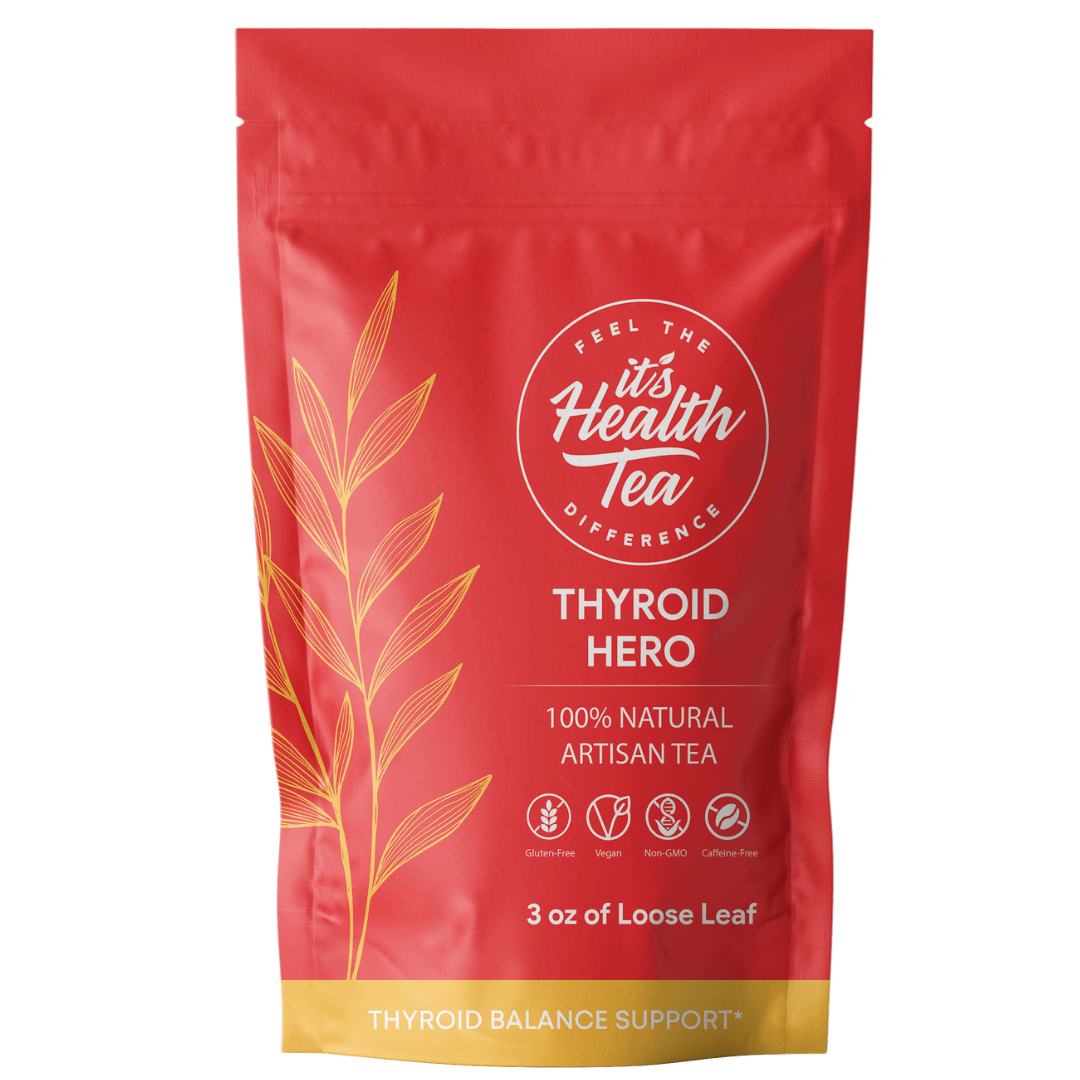This is a personal topic for me. For many years, in my blood work, my TSH levels are always high. While that continues to be the case, after years of going to different doctors to see what can be causing high levels of TSH (while having normal levels of T3 and T4) the answer just might be…IN THE GUT.
While I will update this post in the future, things I’m already doing for gut health seem to have an improvement in my overall health & wellness. This article is about the correlation between gut health and how it can impact your thyroid, specifically TSH levels.
The thyroid gland plays a crucial role in regulating various bodily functions, including metabolism, heart rate, and temperature. The thyroid-stimulating hormone (TSH), which is produced by the pituitary gland, is responsible for regulating the activity of the thyroid gland. The levels of TSH in the blood are used as a marker for thyroid health, with high levels indicating an underactive thyroid and low levels indicating an overactive thyroid. Interestingly, recent research has suggested that there may be a link between good digestive and gut health and healthy thyroid (TSH) levels. In this article, we will explore the correlation between the digestive system and the thyroid gland and examine some possible studies that demonstrate this relationship.
The Digestive System and the Thyroid Gland
The digestive system and the thyroid gland are intimately connected. The thyroid gland requires a number of key nutrients, including iodine, selenium, and zinc, to function properly. These nutrients are absorbed by the small intestine and transported to the thyroid gland via the bloodstream. However, if the digestive system is not functioning properly, this process can be disrupted, leading to a deficiency of these critical nutrients and potentially impacting thyroid function.
Furthermore, the gut microbiome, which is made up of trillions of bacteria, plays an essential role in the regulation of the immune system and the production of neurotransmitters. Recent research has suggested that dysbiosis, or an imbalance in the gut microbiome, may contribute to the development of autoimmune thyroid diseases, such as Hashimoto’s thyroiditis and Graves’ disease. Dysbiosis can be caused by a number of factors, including poor diet, stress, antibiotic use, and other medications.
Studies Demonstrating the Correlation Between Digestive Health and Thyroid Function
A number of studies have investigated the relationship between digestive health and thyroid function. For example, a study published in the Journal of Clinical Endocrinology and Metabolism in 2013 found that patients with Hashimoto’s thyroiditis had a higher prevalence of small intestinal bacterial overgrowth (SIBO) compared to healthy controls. SIBO is a condition in which there is an excessive growth of bacteria in the small intestine, leading to inflammation and damage to the intestinal lining. The researchers suggested that the presence of SIBO may contribute to the development of autoimmune thyroid disease by increasing intestinal permeability and allowing harmful substances to enter the bloodstream.
Another study, published in the Journal of Gastroenterology and Hepatology in 2015, investigated the relationship between irritable bowel syndrome (IBS) and thyroid function. The researchers found that patients with IBS had a higher prevalence of autoimmune thyroid disease compared to healthy controls. They also found that patients with IBS and thyroid dysfunction had a higher prevalence of dysbiosis, suggesting that gut microbiome imbalance may contribute to the development of both conditions.
A study published in the Journal of Nutrition in 2018 investigated the impact of a low FODMAP diet, which is often used to treat IBS, on thyroid function in patients with IBS and subclinical hypothyroidism. The researchers found that the low FODMAP diet led to improvements in IBS symptoms as well as a significant decrease in TSH levels, suggesting that gut health may be an important factor in the regulation of thyroid function.
Another study, published in the journal Thyroid in 2016, investigated the relationship between vitamin D status and thyroid function in patients with autoimmune thyroid disease. The researchers found that patients with low vitamin D levels had higher TSH levels and lower levels of the active thyroid hormone, T3. They also found that vitamin D supplementation led to improvements in thyroid function in these patients. Vitamin D is absorbed in the small intestine, and deficiency can be caused by malabsorption, which may be related to digestive health.
Potential Mechanisms Behind the Correlation
There are several potential mechanisms that may explain the correlation between digestive health and thyroid function. For example, dysbiosis and increased intestinal permeability may lead to the production of antibodies against the thyroid gland, contributing to the development of autoimmune thyroid disease. Furthermore, nutrient deficiencies caused by poor digestive function may impact thyroid function, as the thyroid gland requires certain nutrients to function properly. Inflammation caused by dysbiosis may also impact thyroid function, as inflammation is known to interfere with the conversion of the inactive thyroid hormone, T4, to the active hormone, T3.
Improving Digestive Health to Support Thyroid Function (THIS IS THE KEY….)
Given the evidence for a correlation between digestive health and thyroid function, it is important to support digestive health as part of an overall approach to thyroid health. This may include a number of strategies, such as:
- Eating a healthy diet: A diet that is high in whole, nutrient-dense foods and low in processed and refined foods can support digestive health and provide the nutrients that the thyroid gland needs to function properly.
- Managing stress: Chronic stress can disrupt digestive function and lead to dysbiosis. Practicing stress-reducing techniques, such as meditation and deep breathing, can help to support digestive health.
- Supporting gut microbiome health: Consuming probiotic-rich foods or taking a high-quality probiotic supplement can support the growth of beneficial bacteria in the gut, which may help to reduce inflammation and support overall digestive health.
- Identifying and treating digestive disorders: If you are experiencing symptoms of digestive disorders, such as IBS or SIBO, it is important to seek appropriate medical care to identify and treat these conditions.
Conclusion
In conclusion, the evidence suggests that there is a correlation between good digestive and gut health and healthy thyroid (TSH) levels. Dysbiosis, nutrient deficiencies, and increased intestinal permeability may all impact thyroid function and contribute to the development of thyroid disorders. Supporting digestive health through a healthy diet, stress management, and appropriate medical care may be an important part of an overall approach to thyroid health. Further research is needed to fully understand the relationship between the digestive system and the thyroid gland, but the evidence suggests that these two systems are intimately connected and that supporting digestive health may be an important factor in supporting overall health and wellness.
TAKE ACTION WITH FUNCTIONAL HERBAL TEA BLENDS FOR GUT HEATLH
We formulated, currently, two blends that you should be consuming if you have thyroid issues to make sure you improve overall gut & digestive health which can lead to a better functioning thyroid. I really suggest you give this is try, consuming it daily, until your next blood exam to see how your thyroid (TSH) levels markers are.









